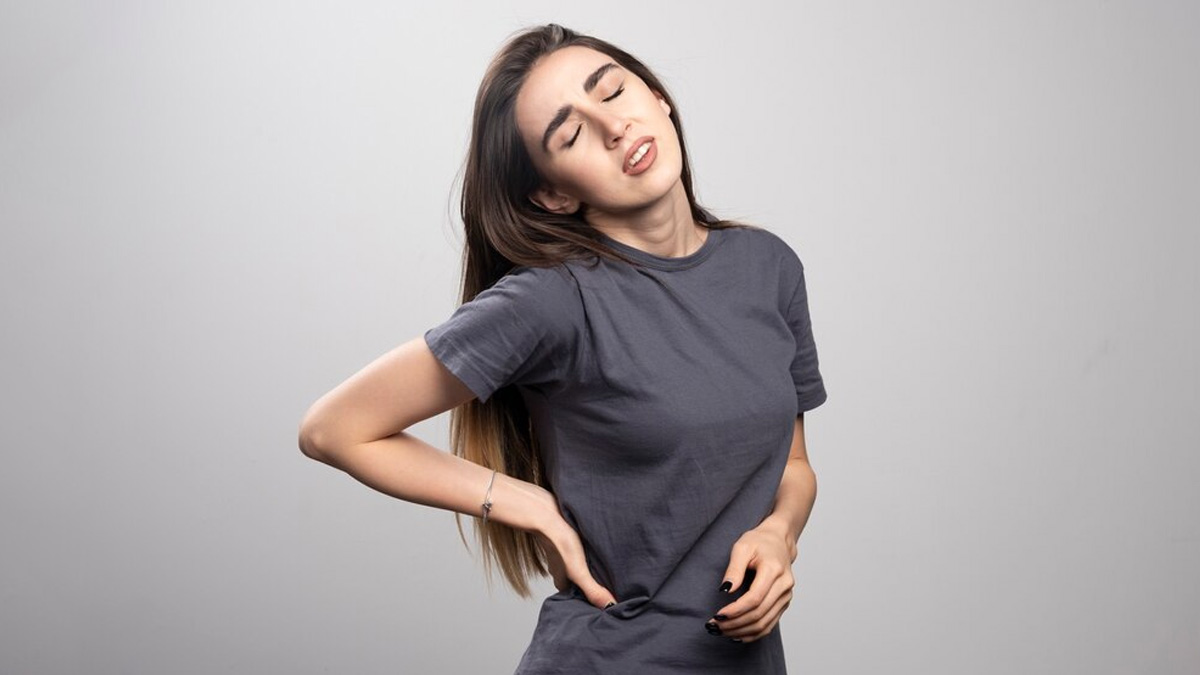
The performance of the locomotor system, which includes intact muscles, bones, joints, and nearby connective tissues, is referred to as musculoskeletal health.
Women's musculoskeletal health faces unique challenges and considerations that deserve special attention. According to a new review of Global Burden of Disease (GBD) 2019 data, roughly 1.71 billion people worldwide suffer from musculoskeletal disorders.
Table of Content:-
In an interaction with Only My Health, Dr Priyank Gupta, MS (Ortho), Sr. Consultant Joint Replacement Surgeon & Head of the Sports Injury and Arthroscopy Dept, HCG Hospitals, Ahmedabad , explained some specific orthopaedic conditions that women commonly encounter, the challenges they pose, and the solutions available to promote better orthopaedic health in women.
Unique Challenges Faced by Women
“Women's orthopaedic issues can be caused by a variety of circumstances, and recognising these factors is important for effective prevention and therapy”, said Dr Gupta. As per him, following are some of the most common causes of orthopaedic issues in women:
Hormonal Changes
“Hormonal fluctuations throughout a woman's life can impact her musculoskeletal health. Oestrogen plays a key role in maintaining bone density,” Dr Gupta said, adding, reduced oestrogen levels during menopause can lead to accelerated bone loss, increasing the risk of osteoporosis and fractures.

Osteoporosis
A threat of osteoporosis is a significant concern for women, especially as they age. Women’s bones tend to be smaller and less dense than men’s, making them more susceptible to fractures. Hormonal changes, such as menopause, further exacerbate this risk.
Regular bone density screenings and adequate calcium and vitamin D intake can help manage and prevent osteoporosis.
Read: Bone Health: Here's How Hybrid Working Modules Affected the Spine Health Of People?
Pregnancy and Childbirth
Pregnancy and childbirth impose significant physical demands on a woman's body. The added weight and shifts in a woman's centre of gravity can strain the musculoskeletal system, leading to conditions like back pain and pelvic pain.
Hormones, such as relaxin, can cause ligaments and joints to loosen, potentially resulting in discomfort.
Menstrual and Gynaecological Disorders
Some gynaecological and menstrual disorders, such as polycystic ovary syndrome (PCOS) and endometriosis, can cause chronic pain, which may lead to altered movement patterns and musculoskeletal issues.
Autoimmune Conditions
Certain autoimmune conditions, like rheumatoid arthritis, are more prevalent in women. The exact cause of this gender disparity is not fully understood, but both hormonal and genetic factors likely contribute. Rheumatoid arthritis can cause joint inflammation, pain, and deformities.
Gender Bias
Dr Gupta pointed out that the bias in healthcare can be a significant cause of delayed diagnosis and treatment in women. Women's orthopaedic symptoms are sometimes dismissed or attributed to psychological factors, hindering access to timely and appropriate care.
Also read: 7 Nutritional Tips To Build Stronger Bones In Children
Sedentary And stereotypic Lifestyle
A sedentary lifestyle can contribute to orthopaedic conditions in women. Limited and stereotypic activities in households along with lack of physical activities can lead to repetitive stress injuries, muscle weakness, joint stiffness, and weight gain, all of which increase the risk of musculoskeletal problems.

Solutions for Better Orthopaedic Health
Prenatal and Postpartum Care
Doctors should incorporate orthopaedic assessments into prenatal and postpartum care. Early identification of musculoskeletal issues during pregnancy can help develop tailored interventions to minimise discomfort and prevent long-term complications.
Access to Specialised Care
Dr Gupta emphasises by saying that efforts should be made to ensure women have equal access to specialised orthopaedic care. Training doctors to recognise and address gender bias is essential in promoting prompt diagnosis and appropriate treatment.
Multidisciplinary Approach
Orthopaedic conditions in women often require a multidisciplinary approach. Collaboration between orthopaedic surgeons, rheumatologists, physical therapists, and other specialists can provide comprehensive care tailored to a woman's unique needs.
Women's orthopaedic issues are a serious healthcare concern that demands more attention and research. Due to factors such as bone density, hormonal fluctuations, and gender prejudice in healthcare, women confront specific obstacles.
We can, however, alleviate these barriers and promote improved orthopaedic health in women by education, prevention, early intervention, and equal access to expert care.
Also watch this video
How we keep this article up to date:
We work with experts and keep a close eye on the latest in health and wellness. Whenever there is a new research or helpful information, we update our articles with accurate and useful advice.
Current Version